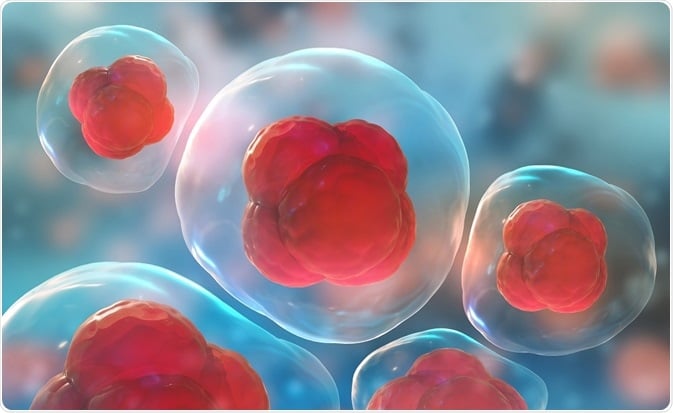Based on molecular weight, function, and structure heat shock proteins can be categorized into 5 major families: HSP100, 90, 70, 60, and small HSP (sHSP)/a-crystallins. All heat shock proteins or chaperones have roles in the processes of folding and unfolding proteins, providing protection of cells against stress, assembly of multiprotein complexes, and controlling cell cycle and signalling.
Under stressed conditions misfolding, unfolding, or aggregation of proteins occurs, stimulating stress responses, resulting in initiation of transcription of proteins. Heat shock factor interactions with heat shock elements within the heat shock protein gene promoter regions results in heat shock protein gene transcription; in unstressed states HSF1 remains in the cytoplasm, under stressed conditions it becomes hyper-phosphorylated. HSF1 binds DNA and translocates to the nucleus from cytoplasm once converted to phosphorylated trimers. Heat shock proteins influence protein homeostasis in a negative manner, which can also downregulate activity of HSF trimers.
Heat shock proteins are considered as therapeutic targets for human and veterinary medicines. HSP90 is considered to be a contender in diagnosis, prognosis, and treatment of cancer. HSP70, HSP60, and small HSPs are potential targets for the management of neurodegenerative disease, cell death, autoimmunity, and ischemia.
Neurodegenerative diseases are challenging due to limited therapeutic options. HSPs, HSP27, and HSP70 have been reported by studies to protect neurons from multiple adverse conditions. Overexpression of HSP70 has been reported to delay progression of Alzheimer’s and Parkinson’s disease.
HSP90 and co-chaperones are responsible for folding of 200 proteins involved in signalling pathways, and refolding of denatured proteins after stress, several kinases are stabilized upon interaction with it, including key members of malignant transformation. HSP90 proteins may have roles in development, proliferation, and survival of some cancers, anti-cancer effects have been observed upon inhibiting HSP90.
Heat shock protein production is elevated during germ cell development, and are considered to be the first proteins produced at the time of embryo growth. HSPs influences various aspects of reproduction in many species, continuous expression plays important roles through all stages of spermatogenesis.
Heat shock proteins are involved in allograft rejection and autoimmunity. Various heat shock proteins are expressed in renal allografts. Expression of HSP70 gene and protein have been reported by studies to be associated with rejection of cardiac allografts.




